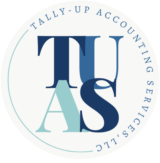When starting a new business as a consultant, one of the most challenging elements may be determining what your rate will be and what you will charge your clients for your services. If you are a starting a business that sells a product, you generally do the market research and see what other products in the market are being sold for – it’s a fairly black & white process. However, if you are selling your skills as your product, the process can be a bit more complicated. Let’s dive in with a few tips on determining your market rate.
In this blog, we will look at determining an hourly rate for services. Depending on your offering, it may make more sense to charge a project rate or retainer rate and we will explore that in a future blog. For now, let’s start with the basics and look at finding a solid hourly rate to charge as a new freelancer/consultant.
Where to start
If you google what to charge as a consultant, you find scores of articles on how to determine yours. One common approach is to start with your hourly rate if you currently working in your specialty area for a company. In this approach, you take your hourly rate and double or triple that for your consulting fee. Ex:
- Leah is a graphic designer at an ad agency and has decided to start her own freelance company. Her current salary is $60,000 per year which equates to roughly $29/hour. With this method, Leah (at a starting point) should consider charging $58-$87 per hour.
This may seem like a big jump in hourly rate, but when you consider the expenses that a freelancer/consultant will need to take on that companies generally covers, such as employer taxes, health benefits, training, office supplies, advertising, etc., it is a necessary increase.
On a personal note, when I first started freelancing, I was charging 1.5x the hourly rate I was earning with my former employer. Thankfully, early in my business venture, I had a CPA that I was working on a project with pull me aside and let me know that I really needed to raise my rates based on what they had seen from other contract accountants. This leads us to the next step in the rate determination process:
Get Competitive Rates from Peers and Prospects
Keep in mind that the above example is meant to be a starting point. It would be wise to connect with other freelancers/consultants in your field to see what their rates are. In past blogs, we have discussed viewing your peers as allies, not competition and connecting with your peers will help you see how you compare and where you stand out. Also connect with potential referral partners and the types of clients you hope to have to get a sense of the market rate for the services that you will be offering.
When looking at competitive rates, be aware that different markets will have different scales. Rates that seem perfectly acceptable in larger markets may be too high for clients in smaller markets and vice versa. Charging too low of a rate may cause potential clients to question your skills and abilities. Consider if you will be focusing on your market or do you have the option of working in multiple markets across the country and how that might impact your rates.
Review Competitor Credentials & Find Your Spot
If you can get competitive info from peers and potential clients, you will likely find that there is quite a range in hourly rates. This is where you need to look at the credentials of your peers and how they correlate to the rates. Education, experience, and accomplishments will all factor into rate. It will be valuable to know your industry well and what people in your vertical chain do at each level and what each level is worth. For example, in the accounting world, the work that can be done by a data entry clerk, a bookkeeper, and an accountant are all very different based on education, skill set and experience. As such, the hourly rates for each are going to differ based on what each can do for the client. Also, specialties in certain industries may warrant a higher rate – an accountant with extensive experience in the oil and gas industry may be able to command a higher rate than a general accountant.
Know (and own) your worth
Hopefully, when you have the information described above, it will be easier for you to assess where you fit into your market. As you start your own freelance/consulting business be confident in where your skill set fits in with your peers as well as with the demand of the market. Having this confidence will be vital to owning your worth in the market.
As a new freelancer/consultant, you will likely have meetings with a lot of prospective clients and if your experience is anything like mine, you will run across businesses that will question your worth by asking you to lower your rates. As a new business owner that is hungry for clients, you may be tempted to do this, but I strongly caution against doing so. Here’s why:
Often when prospects cite issues with your rate, it is likely because there is a mismatch on what they think they need and what they actually do need. Knowing your place in the vertical chain is valuable in these scenarios. If they need a lower level of expertise than what you are offering, let them know and direct them to someone that might be a better fit. (This is where having a strong peer group comes in handy!)
If they do need someone at your level and are asking for a significantly lower rate, they likely have not done their research on what level of expertise you can offer, what your type of services are worth, and how your services can benefit their company. In these situations, offer testimonials and or references from other clients that demonstrate what you have done for them and the value you have brought to their company. As new business owner, you understand that you need to get as much value from every dollar spent, so have the materials necessary to help your prospective client understand that your services will do the same for them.
When you have done the research and are confident in your rate, you won’t feel the need to significantly lower in a client negotiation. At the end of the day, you want to feel like you are being fairly paid and that you aren’t being taken advantage of – that really doesn’t do you or your client any good. Keep in mind that the goal is finding the best solution for the prospective client and for you.
Final Notes
Know that your value and worth are tied to your reputation and the trust you build with your clients. If you focus on providing excellent customer service and keeping your client’s best interests at the forefront, your rate will rarely be an issue. There will always be someone that charges a cheaper rate and that’s fine as long as you can stand behind the quality of the service you provide.

